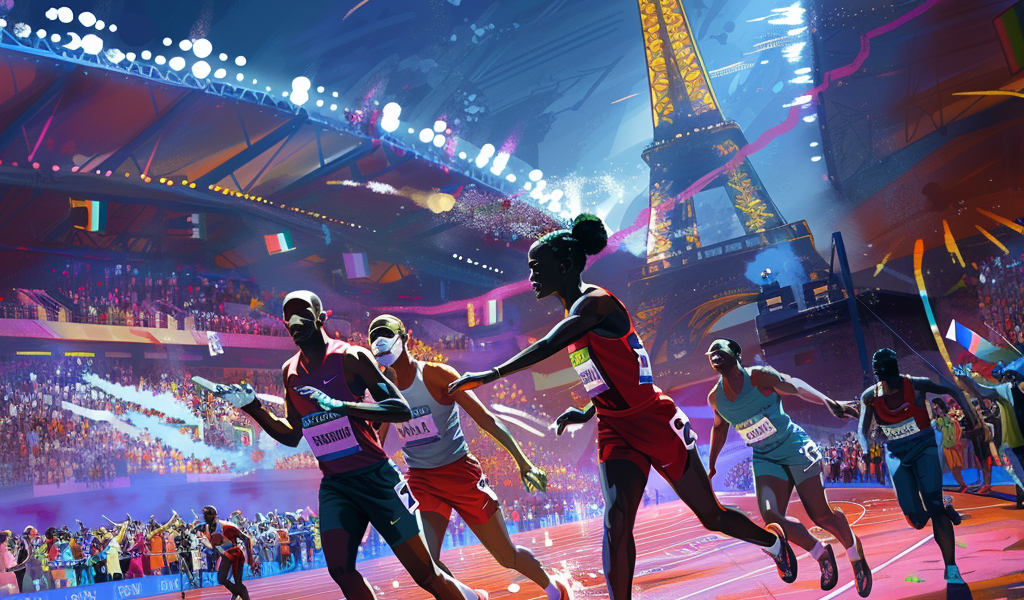The Paris 2024 Summer Olympics were widely anticipated to symbolize a return to normalcy after the disruptions caused by the COVID-19 pandemic. With the promise of cheering crowds, vibrant ceremonies, and the presence of family and friends, the Games were set to mark a significant shift from the isolated experiences of previous Olympic events. However, as the Games unfold, it has become evident that the lingering effects of COVID-19 are still very much a factor in the lives of athletes.
In the months leading up to the Olympics, media outlets emphasized the excitement surrounding the return of fans to stadiums, contrasting the previous two Olympic Games where strict health protocols were in place. The Tokyo 2020 Olympics, which were held in 2021, were characterized by stringent measures that left athletes feeling isolated and restricted. Fencer Kat Holmes reflected on this experience, noting the stark difference in atmosphere between Rio and Tokyo. In Rio, athletes enjoyed camaraderie and connection, while in Tokyo, the environment felt stifling, as participants were constantly reminded to maintain distance.
The Tokyo Games implemented a rigorous set of health protocols aimed at curbing the spread of the virus among athletes and the local population. This included mandatory mask-wearing, regular COVID-19 testing, and strict isolation measures for those who tested positive. The outcome of these stringent rules was a notable success, with only 33 confirmed cases reported among the 11,300 athletes, and no evidence of virus transmission between athletes and the host nation.
As the Paris Games commenced, the expectation was that these strict measures would be relaxed, allowing for a more traditional Olympic experience. However, the reality has proven to be more complicated. The ongoing presence of COVID-19 has led some athletes to take personal precautions, highlighting the need for continued vigilance even in a seemingly more open environment. The responsibility for safety, while shared, should not fall solely on the shoulders of the athletes.
Many competitors are now faced with the challenge of balancing their performance and well-being in an environment where the pandemic is still a concern. The excitement of competing in front of large crowds and the support of loved ones is tempered by the uncertainty surrounding health risks. Athletes are navigating their own comfort levels with social interactions and public engagements, which can impact their focus and performance.
As the Games progress, it is essential to recognize the psychological toll that the pandemic has had on athletes. The isolation experienced during previous Olympics has left lasting impressions, and the transition back to a more communal experience is not as straightforward as it may seem. The desire for connection and support is palpable, yet the fear of potential exposure to the virus looms large.
In light of these challenges, the International Olympic Committee (IOC) and local organizers have a responsibility to ensure that athletes feel safe and supported during the Games. This includes providing clear communication about health protocols, access to medical resources, and creating an environment that fosters both competition and camaraderie.
As the world continues to adapt to the realities of living with COVID-19, the Paris 2024 Games serve as a reminder of the resilience of athletes and the importance of prioritizing health and safety. The excitement of the Olympic spirit is undeniable, but it must be balanced with the ongoing challenges posed by the pandemic. Athletes are not just competitors; they are individuals navigating a complex landscape of emotions, expectations, and health considerations.
In conclusion, while the Paris Games were intended to herald a return to normalcy, the ongoing presence of COVID-19 requires a nuanced approach to ensure the safety and well-being of all participants. As the Games unfold, the lessons learned from previous Olympic experiences will undoubtedly shape the way athletes and organizers respond to the evolving situation.





